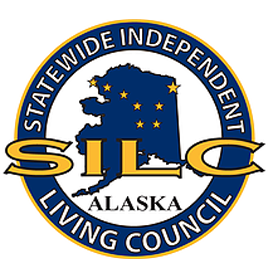What is the Client Assistance Program?
The Client Assistance Program (CAP) helps individuals who experience problems when applying for or receiving rehabilitation or independent living services. The CAP can help if you have questions about or problems with the counselors and/or staff at:
- Alaska Division of Vocational Rehabilitation
- A Tribal Vocational Rehabilitation Office
- A Center for Independent Living
- The Alaska Center for the Blind and Visually Impaired
Are you eligible for CAP services?
The CAP may be able to help if you are a person with a disability who lives in Alaska, and you:
- Need or are receiving vocational rehabilitation (VR) or independent living (IL) services;
- Have been denied VR or IL services, or have been denied application to these programs;
- Disagree with your VR or IL counselor’s decision about the service(s) you receive or need;
- Have had your VR or IL case closed and you are unhappy with the outcome.
If eligible, what can CAP do for you?
- Give you information about VR and IL services;
- Inform you about your rights and responsibilities as an applicant or client of these programs;
- Explain your employment rights under Title I of the Americans with Disabilities Amendments Act;
- Show you how to advocate to protect and assert your rights;
- Advise VR and IL agencies about problems with the “system”;
- Arrange for legal services when necessary to represent you in a formal appeal before any VR or IL agency;
- Advocate for appropriate planning for students moving from school to work.
Do you have to pay for CAP services?
No, CAP services are provided at no cost to you.
Is your contact with CAP confidential?
Yes. You decide who we speak to about your case.
Is the CAP a state agency?
No. The CAP is a program operated by the Disability Law Center of Alaska (1-800-478-1234), a private non-profit legal advocacy organization.
What are your RIGHTS when seeking services?
- Apply or re-apply for services;
- Receive an eligibility determination within 60 days;
- Be treated with courtesy and respect;
- Provide meaningful input into your rehabilitation program;
- Request and receive a written explanation if you have asked for services and have been denied;
- Have decisions explained to you;
- Review and get a copy of your file;
- Have your records kept confidential;
- Appeal any decision about ineligibility or denial of rehabilitation services;
- Ask the CAP for help.
What are your RESPONSIBILITIES when seeking services?
- Notify your counselor if you cannot keep an appointment;
- Give your counselor accurate information about your situation;
- Inform your counselor if your situation changes;
- Do what you say you will do;
- Tell your counselor when you do not understand something.

